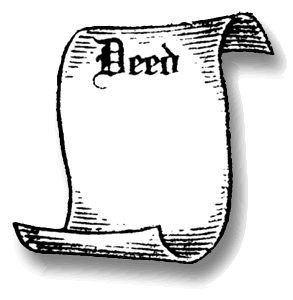
This law creates the revocable transfer on death (TOD) deed which allows a homeowner to transfer to a named beneficiary 1- 4 residential real property upon the owner’s death without a probate proceeding. This is similar to a joint tenancy deed, but easier for the survivor. The benefit is title DOES NOT PASS during life, only after death. This makes the document a hybrid will deed so you can give it away, but take it back before you die! Note, there are lots of rules to follow to make and cancel a Transfer on Death Deed. This law ends January 1, 2021, and allows the survivor to skip a probate proceeding. The deed has no effect until a person dies, and can be revoked at any time. This law applies only to: • Residential one to four properties, • Condominium units and • Single tract agricultural land (40 acres or less) improved with a single-family residence. The revocable TOD deed must be signed, dated and acknowledged before a notary public, and must be recorded within 60 days after execution. During the owner’s life, the deed does not affect his or her ownership rights and, specifically, is considered part of the owner’s estate for the purpose of Medi-Cal eligibility and reimbursement.
There are three ways to revoke this deed: One, complete, have notarized and record a revocation form (the law creates a statutory form for this purpose); Two, create, have notarized, and record a new TOD; and Three, sell or give away the property, or transfer it to a trust, before your death and record the deed. A TOD cannot be revoked by will. The law may void a revocable TOD deed if, at the time of the owner’s death, the property is titled in joint tenancy or as community property with right of survivorship. This law also establishes a process for contesting the transfer of real property by a revocable TOD deed. One remarkable aspect of this law is the list of statutory Frequently Asked Questions (FAQ) that must be part of the TOD deed. In other words, the TOD deed is not merely a single sheet of paper indicating transfer but also includes a 24-question FAQ on subsequent pages which provides a clear explanation of all facets of the TOD deed and other issues affecting transfer of real property upon death. Assembly Bill 139. This law permits the creation of a TOD deed as of September 15, 2015, but will only be effective if the transferor dies after January 1, 2016. The law sunsets on January 1, 2021. Codified as Family Code §§ 2337 and 2040; and Probate Code §§ 69, 250, 267, 279, 2580, 5000, 5302, 5600 et seq., 13111, 13206, and 13562.

